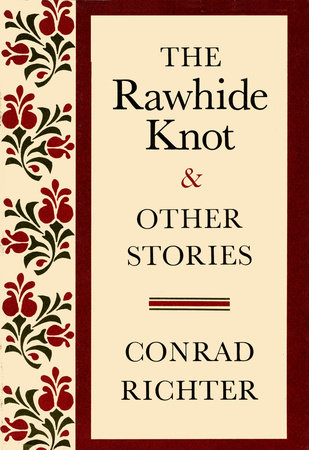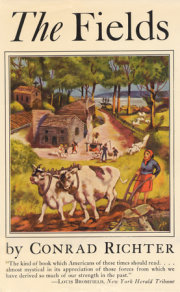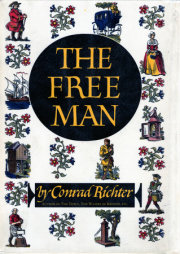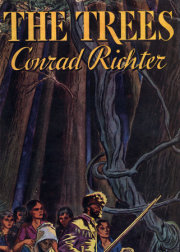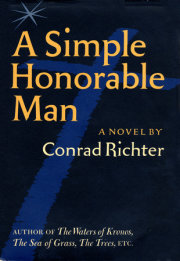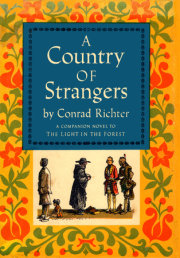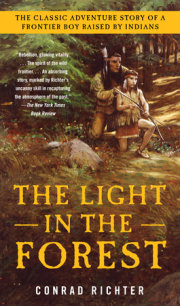The powerful story-telling voice that has carried so many readers back into the world of the American frontier is heard again in these eight tales of pioneers and pioneer days by the author of The Sea of Grass, The Light in the Forest, The Waters of Kronos and The Town. Each story captures the force and sweep of our past in all its fierce reality, bringing us the strong, vigorous, unforgettable men and women of a simpler, harsher, more heroic time.
The title story gives the collection its unifying theme, that of the frontier marriage, the “rawhide knot”—the couple bound together by the rough exigencies of pioneer life. A young girl, Sayward Hewett, has walked with her family from Pennsylvania to a settlement in the Ohio wilderness, and she is afraid of nothing. One night the men of the settlement—drunk, bent on real devilment, hardly less wild after a day’s carousing than the panthers lurking just beyond the handful of log cabins—decide to “hatch up a marryin’” between an old maid and a shy, outcast, book-learned young lawyer from back East. But the girl Sayward, facing the whole lot of them, determined that she will marry their scapegoat bridegroom, wins her own victory.
In “Smoke Over the Prarie,” a marriage seems to presage—indeed, to precipitate—the downfall of a great baron of the Old West. In “Early Americana,” and eighteen-year-old boy, trapped in a Comanche uprising, finds himself ambushed by love. In all of these stories, love and violence are yoked together by the challenge of life on the frontier. Here is the physical and emotional landscape of that world, with its vast spaces, its elemental struggles, its quality both of legend and of history, brought to us with the power and breadth that have given Conrad Richter’s work its enduring place in American fiction.

